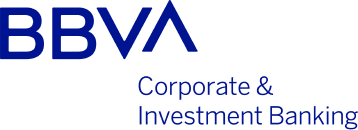
News | 19 November 2025
What is confirming and how does it work: advantages for businesses
In an environment of global uncertainty,confirming has emerged as a reliable alternative to protect companies’ working capital and reinforce their supply chains. It also offers an opportunity to move towards more sustainable business models by integrating ESG criteria into financial management.
What is confirming?
Confirming, also known as payables finance or reverse factoring, is a financial service that enables organisations to manage supplier payments more efficiently. Through this service, the buying company can offer its suppliers the option to collect their invoices in advance via a financial institution. In doing so, they strengthen their supply chain and optimise their working capital management.
The confirming process begins when the buyer sends the financial institution a list of approved invoices payable to its suppliers. From there, the bank offers these suppliers the chance to receive early payment of those invoices before their due date. On the agreed date, the institution collects the amount from the buyer, who thus maintains their usual payment terms, while their business partners improve liquidity and reduce default risk.
How is confirming different from factoring?
While confirming and traditional factoring share the same goal of financing commercial invoices, they differ in who initiates the transaction and which credit risk is assessed.
In factoring, it is the seller (supplier) who requests the advance, whereas in confirming it is the buyer who initiates it, offering their suppliers the opportunity to collect payment earlier through a financial institution. This approach, based on the buyer’s creditworthiness, often results in better conditions for suppliers and a more efficient, stable supply chain management.
How confirming works: step-by-step
1. Programme set-up and invoice approval
The buyer first agrees on programme terms with the financial institution,defining payment schedules, currencies, discount rates and potential ESG criteria. Once internally approved, invoices are uploaded to the confirming platform together with their amounts and due dates.
2. Early payment offer and supplier enrolment
Suppliers enrol in the programme just once. When their invoices are approved, they can choose either to wait until maturity at no cost or to receive early payment with a small discount applied up to l the agreed date.
3. Settlement at maturity
On the due date, the buyer settles the total invoice amount with the financial institution, covering both early-paid and standard invoices. The institution, having already disbursed the early payment amounts, completes the process automatically and with full reconciliation.
Benefits of confirming
Confirming has established itself as a key financial tool to optimise working capital and strengthen relationships with suppliers.It offers advantages for both buyers and suppliers by providing flexibility, efficiency and better cash flow control:
- Improves supplier liquidity – allows suppliers to receive early payment without relying on their own credit capacity.
- Optimises working capital – buyers can maintain or even extend payment terms without compromising suppliers’ financial health.
- Strengthens supply chains – fosters more stable, trust-based relationships between buyers and suppliers.
- Enhances administrative efficiency – automates and simplifies payment and collection processes, reducing operating costs and errors.
- Boosts transparency – provides visibility over invoice status and timelines, improving financial planning.
- Promotes sustainability – integrates ESG considerations into financial management.
Who can benefit from confirming?
Confirming is particularly recommended for companies managing large volumes of supplier payments or seeking to strengthen their supply chains without affecting their liquidity.
It is also an effective solution for suppliers looking to access fast, cost-effective financing, leveraging the creditworthiness of their key customers.
BBVA CIB leads innovation in sustainable confirming, integrating ESG principles that promote more responsible relationships between buyers and suppliers.




